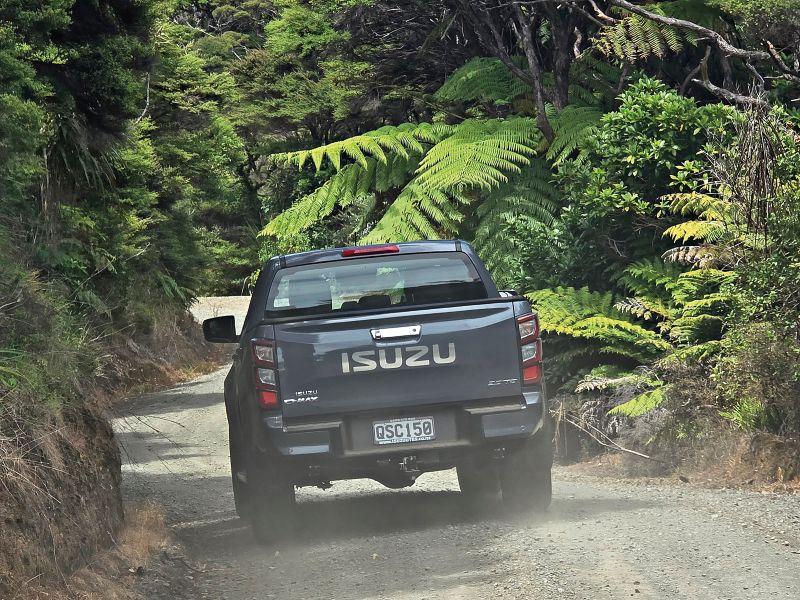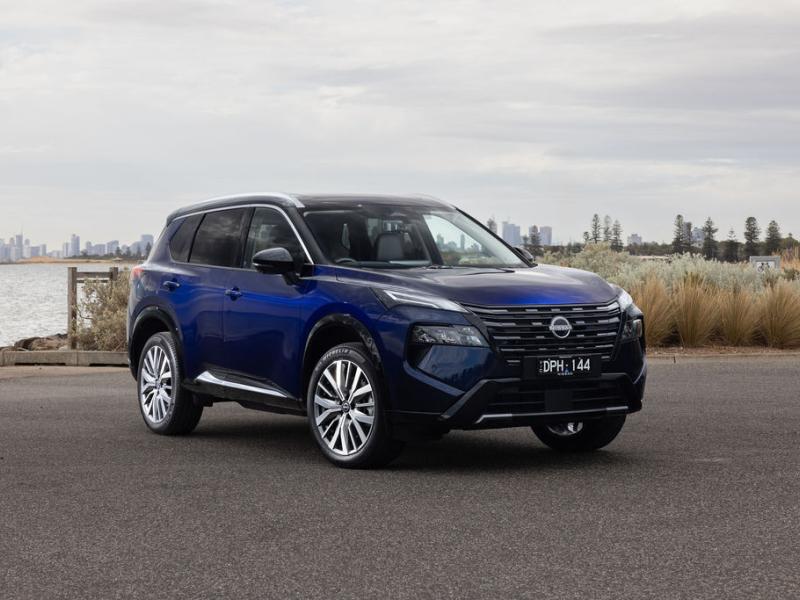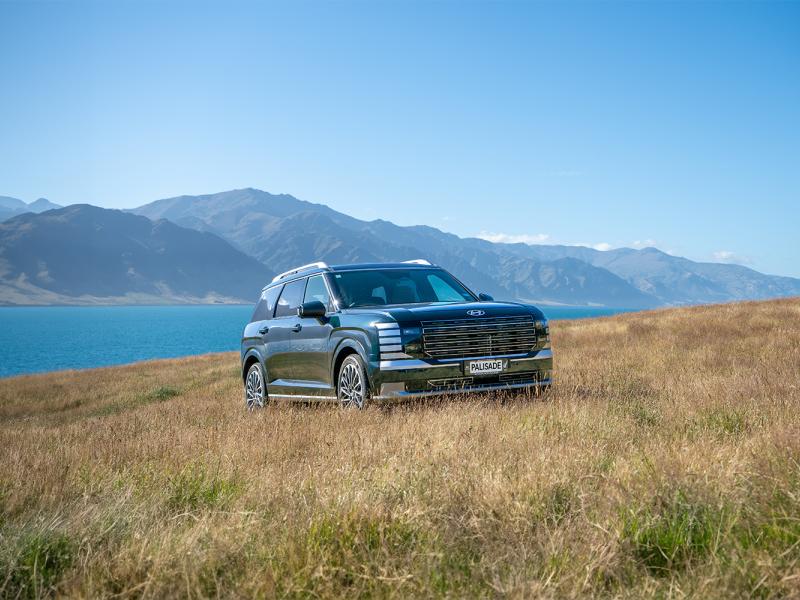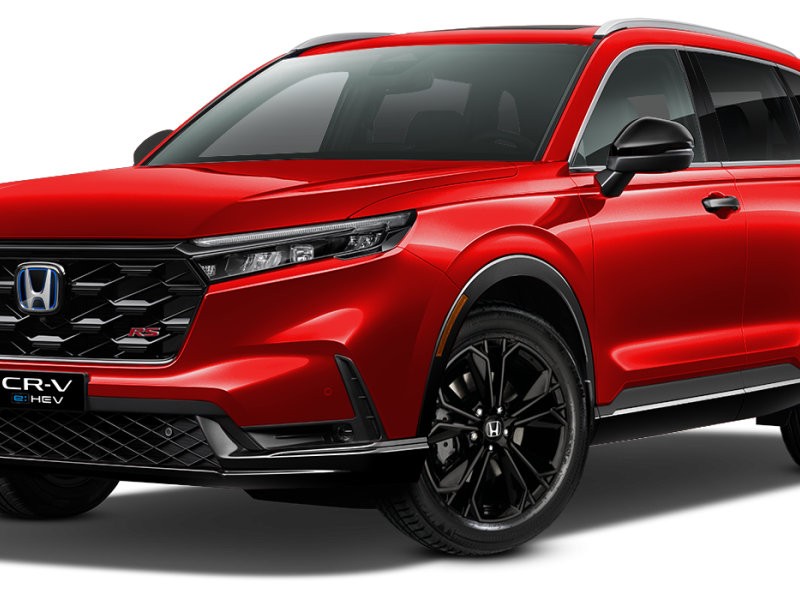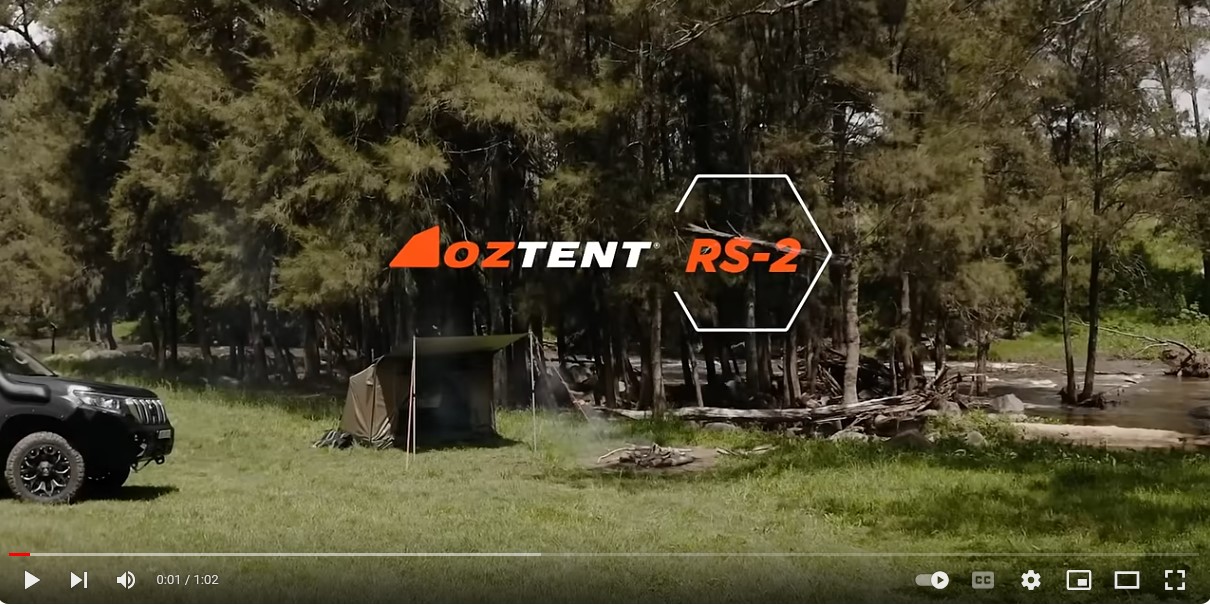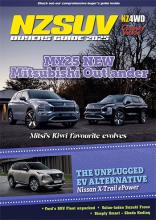When we first drove the new Triton, it impressed for its tech, spec and engineering, particularly for the latest versions of the 2.4-litre biturbo diesel engine and 4WD system.
The stock wheels and tyres were surprisingly capable, though not aggressive. In the dual test against an XLT Ranger, there were questions about the Triton’s ability to do everything the Ranger could, simply due to the tyres’ lack of grip in muddy going.
So the accessorised Triton’s whopping great Nexens, mounted on DTM alloys, were of immediate interest. Did they do the job out around Whaanga Coast and on the tarmac roads to and from? Absolutely.
For me, this was the single most effective upgrade in all the gear Fully Equipped added to the vehicle.
Road noise, treadblock thrum? Not especially. The Nexens are an aggressive tread but in the style of many modern tyres they are civilised and quiet.
Grip? Immensely improved. Off the line, at road speed, in the twisty stuff.
Braking? Hugely improved, with more pedal feel also improving braking modulation. Cornering? Lots more grip, more ‘seat’ feedback to the driver.
Steering? More feel, more feedback without a measurable increase in kickback over rough surfaces.
We won’t even go into the wider track’s influence on the truck’s appearance. That’s subjective. It’s good though.
But the wheels and tyres contributed to a significant increase in confidence out around the Whaanga Coast, and that’s important. Especially when Mr Ranger comes lurching up out of a steep driveway leading down to someone’s hillside glamp. Swerve, brake, aim past the lurching Ranger.
Enhancing Triton’s utility
Adding the canopy and lockable drawers makes the Triton super-practical. The drawers are proving popular with deer, pig and game bird hunters, as they put firearms out of sight and out of reach.
Likewise anglers, who can get their expensive rods, reels and nets securely stored.
The gear’s extra weight does also help keep the Triton’s rear end under control.
This setup will suit many campers and adventurers too, given that it still provides open storage space above the drawers.
Inside the cab, the gooseneck holder for the mobile phone is pretty handy but then forces the user to choose between the charge pad and the gooseneck – or plug the phone in to charge it. First world problem, I guess.
Like Dave, I do find the Triton’s driver alertness monitor a pain. Apparently, it’s been tweaked, but it was still going off constantly on the twists and turns of Whaanga Road, where we were often looking out the side window to see if the road was clear ahead of the bend we were entering. As a lifelong rally fan, I just know no WRC car ever had or needed intrusive ‘nanny tech’ like this.
The Triton is livelier than the D-Max out on the Whaanga Coast, the bi-turbo array on the Triuton delivering power earlier and then robustly up into the middle of the rev range.
D-Max and rural credibility
Stock standard, the D-Max is a solid performer, always a firm favourite on the farm and in rural communities. It’s a ute that doesn’t mind getting dirt under its fingernails.
Travelling down from Auckland with one eye on the weather, the D-Max was a perfect travel companion. Likewise, on the way back, we used the truck’s active cruise control on the expressway and found its anticipation of slower traffic or vehicles crossing into our lane was perfect. In either ute, forward emergency braking is pretty shocking first time it triggers. At least D-Max has an initial heads-up red LED flasher before the anchors go out.
D-Max has an engine that is built to truck engineering principles and standards. What it gives away in initial response is then made up in the mid-range where engine torque and transmission ratios are exceptionally well matched. Wheels and tyres are not as aggressive as the Triton’s but there is plenty of footprint to match the D-Max’s weight. Like Dave, I found any rear end scrabble under acceleration was easily damped by selecting 4-hi. Or lifting the throttle slightly.
Leading the Triton up out of Raglan to the Whaanga Coast the D-Max is super-easy to keep on pace. As we hit the gravel, I try the manual shift for a while. It’s a handy way to maintain a desired pace though not as economical as letting the transmission choose gears itself. Sometimes, six ratios are plenty when they are well chosen and match the engine’s torque curve. The cabin’s not quite as flash as the newer Triton’s but visibility is good. I keep the seat up as far as I can though there’s not a lot of bomb-holes to avoid. Both front corners of the bonnet are visible, giving a clear idea of where the front corners are.
Washboarding does unsettle the D-Max’s rear somewhat, more so than in the case of the Triton.
Throughout the drive, the D-Max just gets on with the job, unfussed and calm. Without aftermarket enhancements, it’s still right at home in this rural environment.
We drop down a side road to the coast to grab a bite to eat and discuss the relative merits of the utes. Consensus is that there’s now little to choose between D-Max and enhanced Triton.
Having the add-ons bringing the Triton up to the D-Max so emphatically that it now just poses a further question: what would an accessorised D-Max be like? A further question: the Triton’s wheel/tyre swap has elevated its on-road and dirt road ability, but the D-Max’s stock-fitment Bridgestone Dueler H/Ts are well up to most tasks. That begs the question: for adventuring, how good would a D-Max be with more aggressive tyres?

